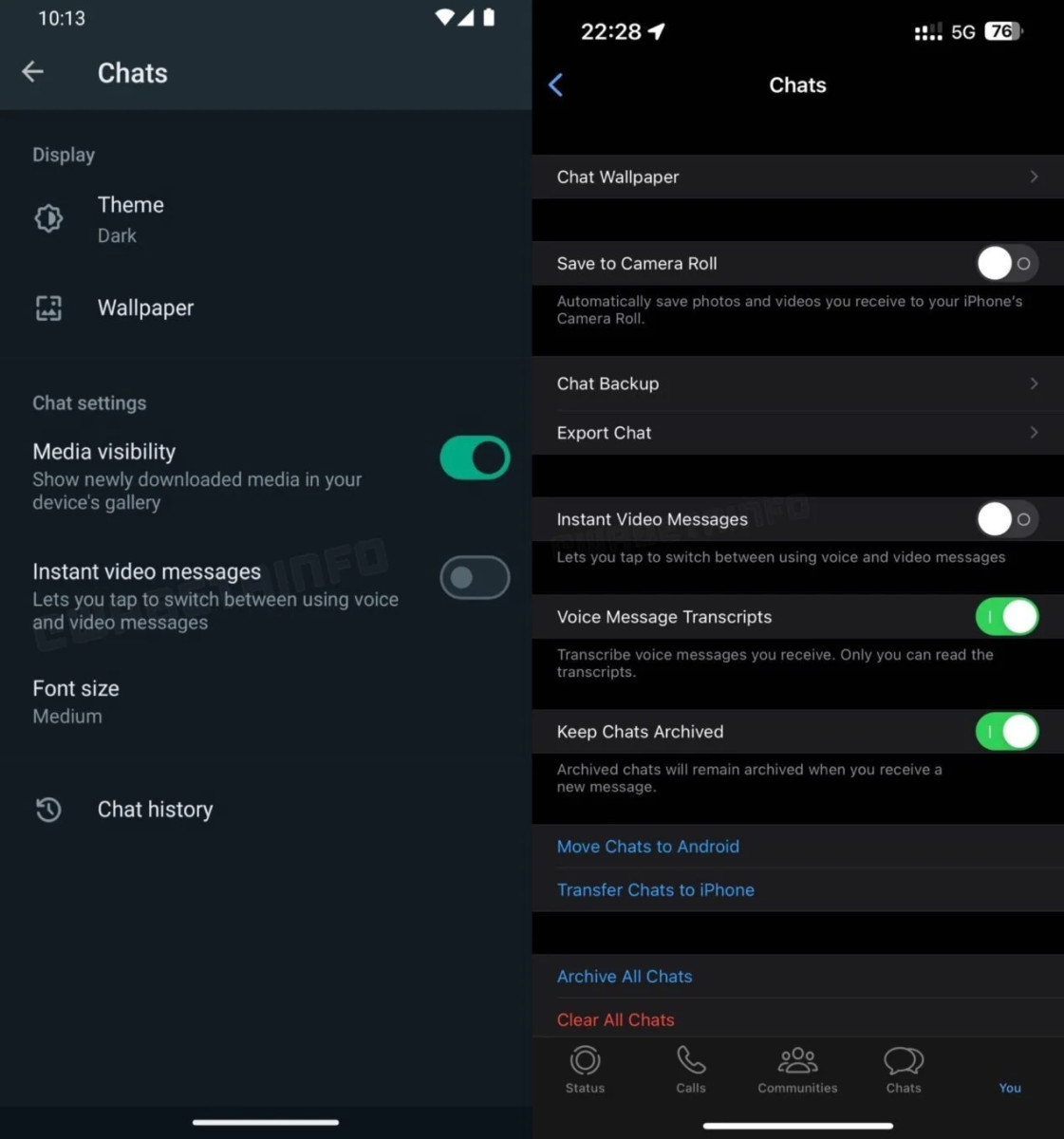Soon, WhatsApp will offer a welcome solution for those of us who prefer conversations without video. The world's most popular instant messaging app is working on a new feature that will allow users to disable the receipt of video messages. While voice messages have found their place among users' communication habits, video messages, introduced more recently, are attracting mixed opinions. However, it seems that WhatsApp wants to give users greater control over their messaging experience by introducing this much-anticipated option.

According to information revealed by WABetaInfo, which shared screenshots from the beta version of the iOS and Android app, WhatsApp is working on integrating a feature to disable the receipt of instant video messages. This new feature promises to give users greater flexibility to personalize their messaging experience while taking advantage of the features that make WhatsApp the platform of choice for staying in touch with friends and family, if we were to mention group chats alone, writing messages in color, etc.
Will video messages become optional?
WhatsApp plans to make instant video messages completely optional, a decision that stems from their sometimes awkward activation. Meta, WhatsApp's parent company, has introduced a new setting in the iOS and Android beta versions of the app, allowing users to disable this awkward feature.
Delicate activation
The origin of this decision lies in the sometimes incongruous way in which instant video messages are triggered. WhatsApp's developers opted for an unfortunate association with the voice recording function. Indeed, a brief tap on the voice message icon is all it takes to access the instant video message function, a transition that can occur without the user being aware of it.
Prevent activation errors
It is precisely to avoid unintentional activation errors that WhatsApp has taken the initiative of allowing users to disable the instant video message function. This update aims to offer users greater control, avoiding the awkward situations where they find themselves accidentally activating video when they simply want to record a voice message.
An option to disable video recordings, but not yet displays

WhatsApp is taking a step in the right direction by introducing an option to disable instant video recording, but there's a catch. This new feature only allows you to disable the recording button for short videos.
Unfortunately, this means that you'll continue to receive instant videos, whether you like it or not, within your conversations. WhatsApp apparently hasn't yet considered adding an option to completely disable the display of these videos in the application, a feature that would nevertheless be most sensible.
The intrusion of instant video
Instant video messages are far more intrusive than voice messages, which are now commonly accepted in the application. Just open a conversation and you'll see: even if you haven't asked for anything, an automatic preview of instant video messages starts up (with the sound muted, fortunately), with no possibility of stopping it.
Greater control over your messaging
The addition of an option to disable the display of these videos could offer users total control over their messaging experience, allowing them to choose when to view these instant videos, rather than being confronted with them every time they open a conversation. Such an enhancement would undoubtedly be welcome for many WhatsApp users.
Speaking of controls, if you need to, you can also hack a WhatsApp account easily. This is necessary, for example, when you want to protect your children from bad company.






